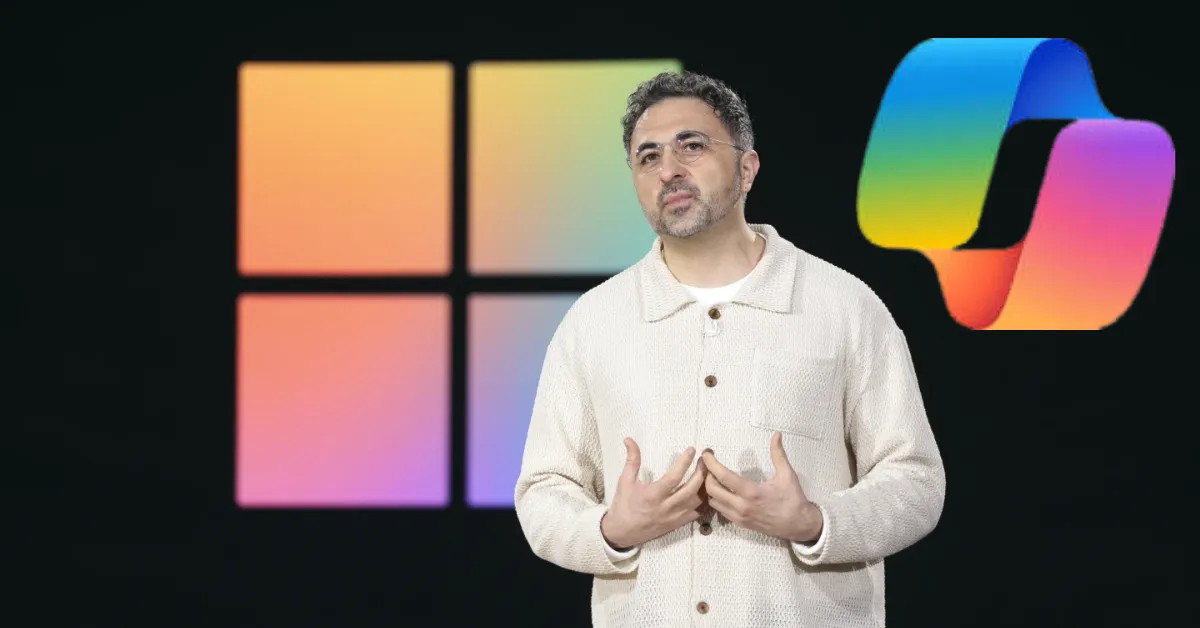When Mustafa Suleyman took the helm as CEO of Microsoft AI in 2024, few could have predicted the turbulence, ambition, and ethical cross-winds that would define his tenure. From championing Copilot’s future to raising alarms about AI’s psychological impact, Mustafa Suleyman is proving his role is far more than a title; it’s a battleground for the next era of tech.
From DeepMind Pioneer to Microsoft Powerhouse
Mustafa Suleyman’s rise has been as swift as it has been unpredictable. He co-founded DeepMind, left to co-found Inflection AI, and was then snapped up by Microsoft to lead its consumer and research AI ambitions.
In March 2024, Microsoft appointed him Executive Vice President & CEO of Microsoft AI, a clear signal that the company was shifting from incremental to exponential.
The Copilot Playbook – Personalised AI, Big Stakes
At the heart of Mustafa Suleyman’s agenda lies the company’s flagship consumer-AI product, Microsoft Copilot. In a crowded field of assistants-turned-chatbots, his argument is simple: it’s not about raw horsepower, it’s about relationship. “Personality, memory, assistive intelligence” are the differentiators, he says.
What does that look like? Increased personalization, extended context, deeper memory. These features aim to anchor Copilot not just as a tool, but as your digital collaborator.

Building Frontier Models, Microsoft’s Ambition Under Mustafa Suleyman
In September 2025, Microsoft disclosed it was training its own “frontier” AI models at scale, clusters six to ten times larger than current systems, according to Mustafa Suleyman.
Why does this matter? Because it signals a shift from leveraging third-party models (like those from OpenAI) to full ownership of the stack, from chip to cloud to model. It’s a bet on independence, talent acquisition (earlier the Google-raid of DeepMind scientists) and a long-term vision for AI leadership.
Ethical Guardrails and the “Seemingly Conscious AI” Warning
Yet Mustafa Suleyman is far from a Silicon Valley tech-optimist unbridled. He has sounded caution on what he calls “Seemingly Conscious AI” (SCAI): AI systems that may appear sentient, triggering real psychological or social consequences.
He also flagged the rise of “AI psychosis” when users blur reality and machine, urging the industry to build guardrails now. His message: power without responsibility invites risk.
Challenges Under the Spotlight
- Defection and Talent War: Microsoft’s lure under Suleyman drew dozens of AI researchers from rivals, raising questions about culture and retention.
- Internal Disruption: During Microsoft’s 50th anniversary event, an employee protest disrupted Süleyman’s speech over the company’s AI ties in the Middle East.
- High Expectations, Thin Margin: As CEO of Microsoft AI, Mustafa Suleyman carries the burden of both innovation and pragmatic execution at scale. Missing targets could cost more than reputation.
- Ethics vs. Speed: Building frontier AI while publicly warning about its dangers poses a nuanced leadership challenge, balancing speed, transparency, and social license.
What This Means for Users and Developers
If you work with or use AI today, here are some near-term takeaways from Suleyman’s strategy:
- Expect deeper personalization in tools like Copilot; your assistant might become you-centric, not just task-centric.
- Be aware of the scale of computing and data being marshalled behind the scenes; AI capability is accelerating.
- The ethical discourse matters: marketing may paint AI as a partner-like entity, but leaders like Mustafa Suleyman stress that utility-first still wins over anthropomorphism.
- If you’re a developer or student, his advice is clear: experiment, iterate, learn the limits of models before assuming scale makes them perfect.
Key Facts to remember now
- Mustafa Suleyman is a pivotal figure in AI’s next chapter, leading Microsoft AI at a moment of intense competition and scrutiny.
- His focus isn’t just on building smarter AI tools; it’s on building smarter relationships between tools and people.
- Microsoft under his leadership, is shifting from using externally-sourced models to owning the stack, from models to infrastructure.
- But the tension is real: rapid advance vs. ethical restraint, power vs. accountability.
- For users and developers alike, the message is to stay curious, stay cautious, and stay prepared for AI that isn’t just smarter, but more personal.
FAQs
Who is Mustafa Suleyman, and what is his role at Microsoft?
What major strategy has Mustafa Suleyman set for Microsoft’s AI direction?
Suleyman has outlined two major pillars: personalization of AI (longer memory, human-centric design) and building in-house frontier-scale models, reducing reliance on external partners.
What is “Seemingly Conscious AI,” and why does Mustafa Suleyman warn about it?
How does this leadership change affect consumer-facing products like Microsoft Copilot?
What should developers or users take away from Suleyman’s advice?
Suleyman urges early experimentation with AI tools to understand their limits, not just their capabilities. He suggests younger creators treat AI like a new canvas, make mistakes, learn, iterate, and stay aware of ethical implications.